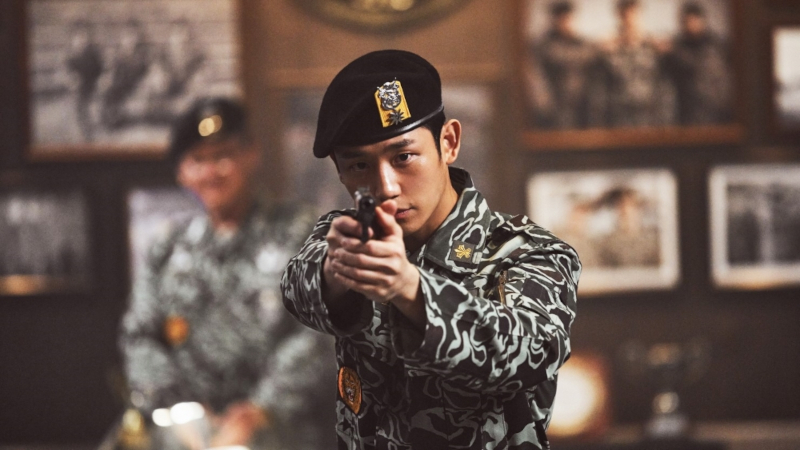Director – Kim Sung Soo – 2023 – South Korea – Cert. 15 – 141m
*****
In 1980, one Major General attempts to stop another from successfully orchestrating a military coup in South Korea – historical drama is South Korea’s entry for 2025 Best International Feature
In the aftermath of the assassination of President Park in 1979, an event portrayed in The Man Standing Next (Woo Min-ho, 2020), Chief of Staff Jeong (Lee Sung-min) promotes Major General Lee (Jung Woo-sung) to head of the Capital Garrison Command “because you’re not motivated by greed” and charges him with the job of defending Seoul. His concern is another Major General, Director of Joint Investigation Chun (Hwang Jung-min), who has access to the country’s surveillance services and is a member of the secret society Hanahoo which is rife within the military. Chun is already behaving like a king, and Jeong is worried what he might be planning.
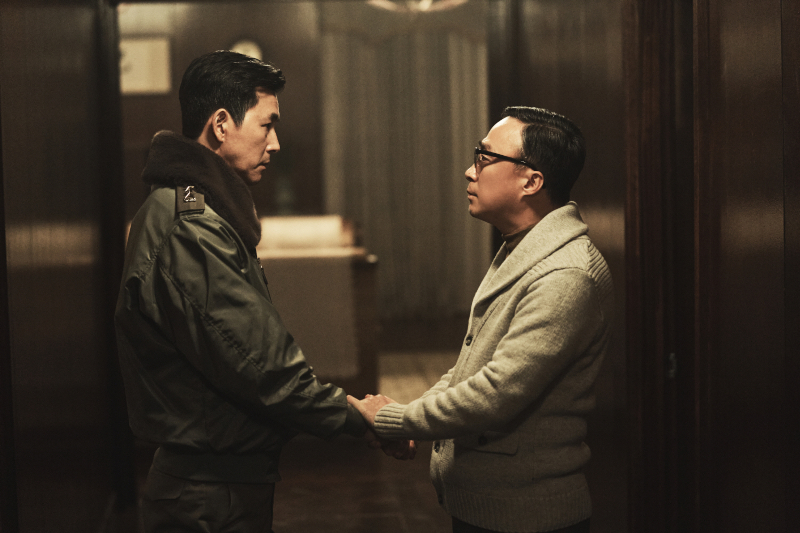
And well he should be, because Chun is figuratively and literally empire-building, planning a coup d’etat and working out who is loyal to him (and will carry out his commands) and who isn’t. As far as he is concerned, Jeong is the enemy, and although the latter has been cleared of any involvement in the assassination, his presence at the scene of the assassination is enough to justify arrest and further interrogation. Jeong, meanwhile, plans to move Chun to defend the Eastern Seaboard (and incidentally keep him away from the capital), a fact about which Chun is furious when another general leaks it to him.
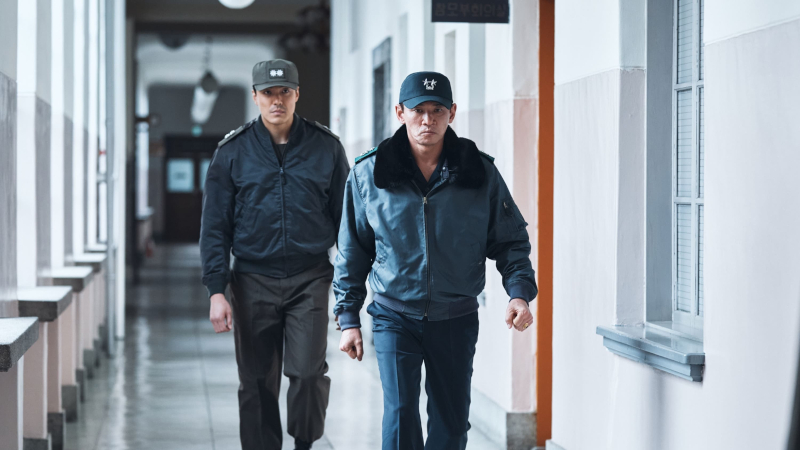
Chun’s plan is to divert Jeong and Lee to meet with him for a social evening at, as it turns out, a gisaeng (Korean geisha) house while Chun himself, keeping them waiting rather than turning up as expected, visits the new President to have the latter sign Jeong’s arrest warrant.
At the presidential palace, Chun tells the president this is a matter of the utmost urgency, and that the president should dispense with the formality of having his Minister of Defence authorise this warrant before signing. But the President, perhaps wary of Chun and seeing through his facade to a potential coup, insists on not signing without the proper protocol. Chun does not intend to give up so easily, seeking to find Hanahoo members and other military commanders who will carry out his orders.
So begins a contest between Chun, ordering loyal Generals to mobilise their units into Seoul to facilitate Chun’s power grab, and Lee, ascertaining which units are loyal to the State rather than Chun and who will move to defend Seoul from Chun’s factions.
Chun is portrayed by Hwang as a hothead who nevertheless possesses the charisma and chutzpah that makes many others follow him. He’s also completely ruthless, thinking nothing of, for instance, getting out of being arrested in his car on a government base, by having his assistant risk being shot by single-handedly opening the gates then rewarding that assistant’s loyalty by running the man over to get his own person out of the compound to safety a.s.a.p. He is probably a psychopath.
Whenever it looks like Chun might not achieve his objective, he uses his determination to succeed at any costs to convince wavering generals following him, convinced that it’s all over, that they need to stay the course.
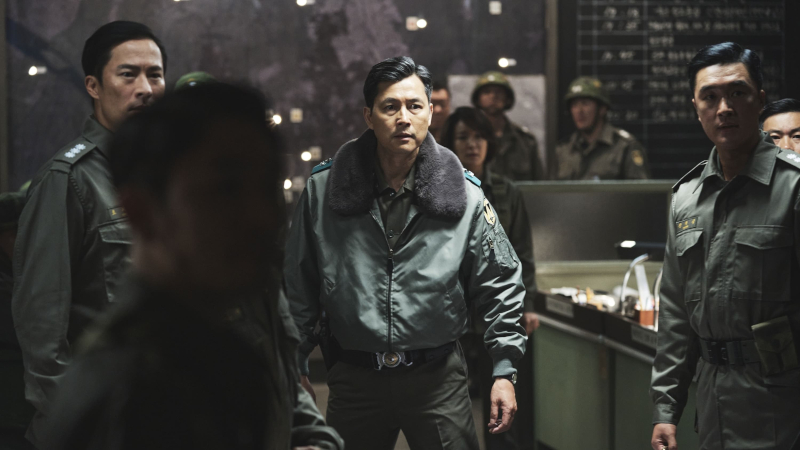
He stands in marked contrast to Jung’s Lee, a soldier initially unwilling to take on the position offered him by the calm and savvy Jeong, even when informed that “all I want you to do is to defend Seoul – nothing else.” This is a leader who will offer his men a chance to stand down before leading them in an operation very likely to fail because the numbers are against him. His rival may have the numbers, but Major General Lee is the one who occupies the moral high ground, a figure to whom audiences can look up – almost a role model, if you will. (That arguably makes Hwang’s ever-so slightly loopy, comparatively morally deficient character a lot more fun to watch.)
Indeed, one of the pleasures of this film is its compendium of character studies: a President who is not about to be bullied into signing an arrest warrant for an innocent man loyal to the State, a Minister of Defence who, when it comes down to it, is basically a coward out to save his own neck, generals lacking backbone under pressure, and one general whose personal codes of honour cause him to be tricked into a gentleman’s agreement with Chun when the latter has no intention of abiding by any such verbal contract.
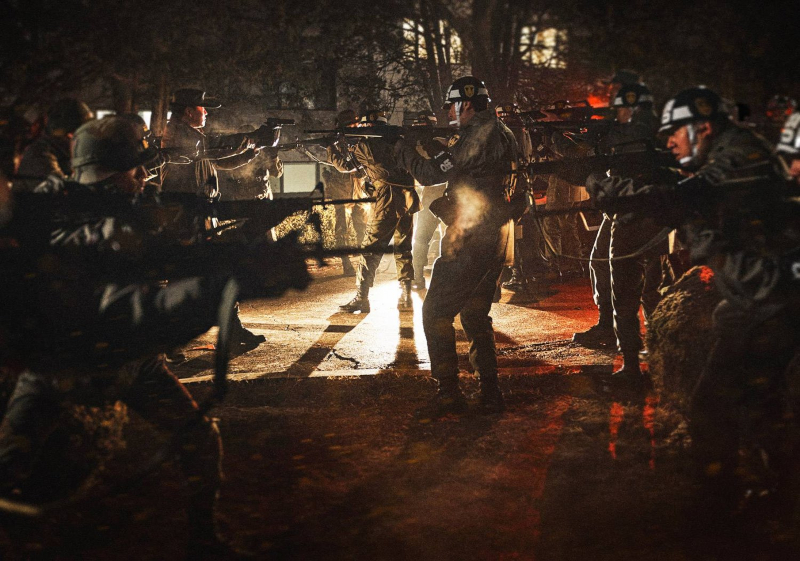
The world of the 1980 coup is presented as very much a male one. The geisha who serve as a diversion for Jeong and Lee to enable Chun to enact his planned coup are little more than window dressing for the plot. Far more interesting is Lee’s wife, presented as the dutiful spouse who makes sure her husband knows she’s just bought him a new scarf and put it in his bag. Jeon Su-ji’s nuanced if all-too-briefly seen portrayal suggests there’s a lot more going on beneath the surface, of their marriage and that she’s an ally he’s lucky to have.
As a developing picture of how a military coup is carried out, and what it’s like to be caught in the middle of such an incident, the film is peerless, even if it’s sometimes difficult to follow which minor general is which. Many of the names have apparently been changed from the historical record. It never quite reaches the dark, regime-defining heights of National Security (Chung Ji-Young, 2012) – but then, very little does.
Historical drama 12.12: The Day is South Korea’s entry for 2025 Best International Feature
Trailer:
